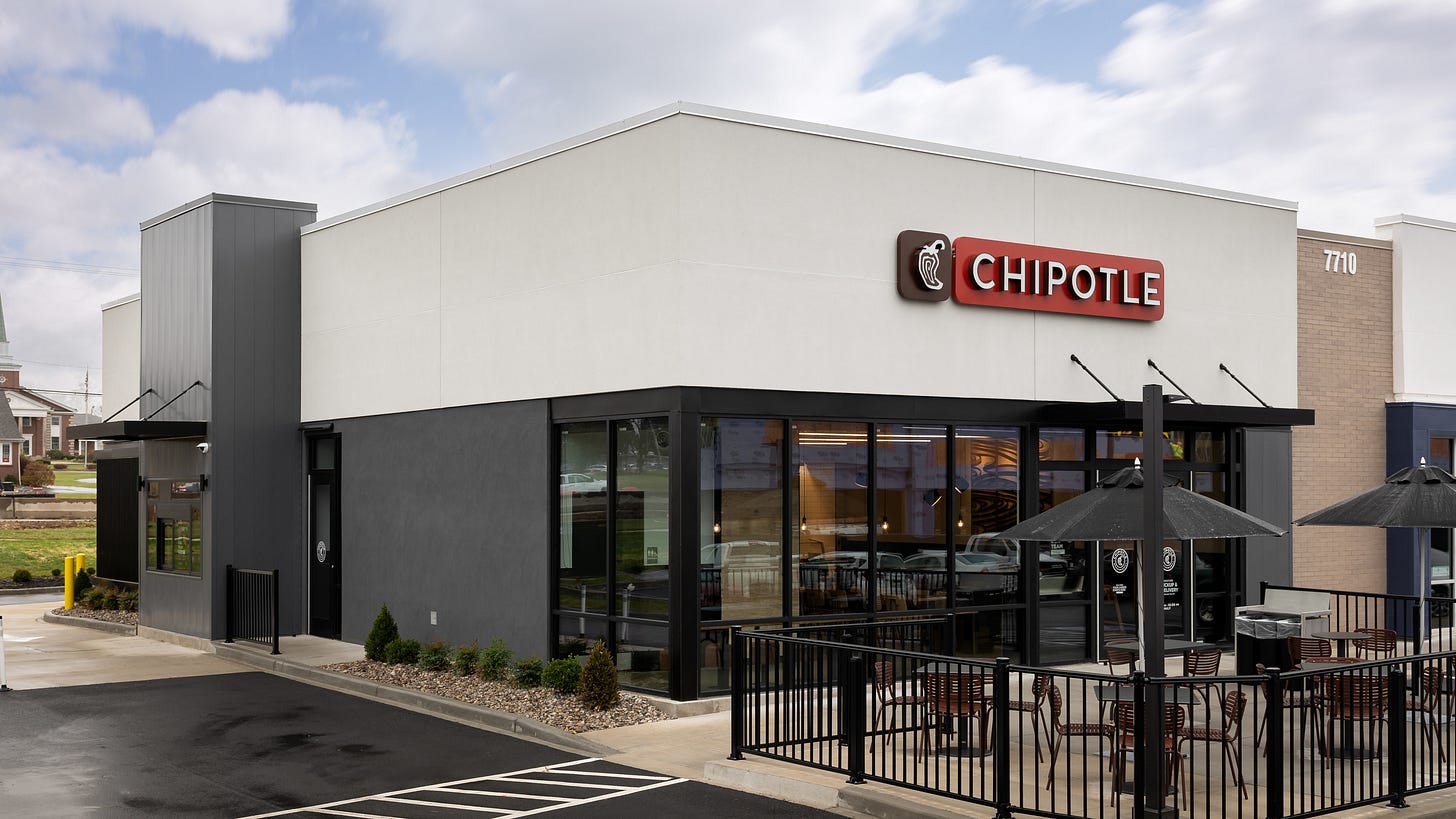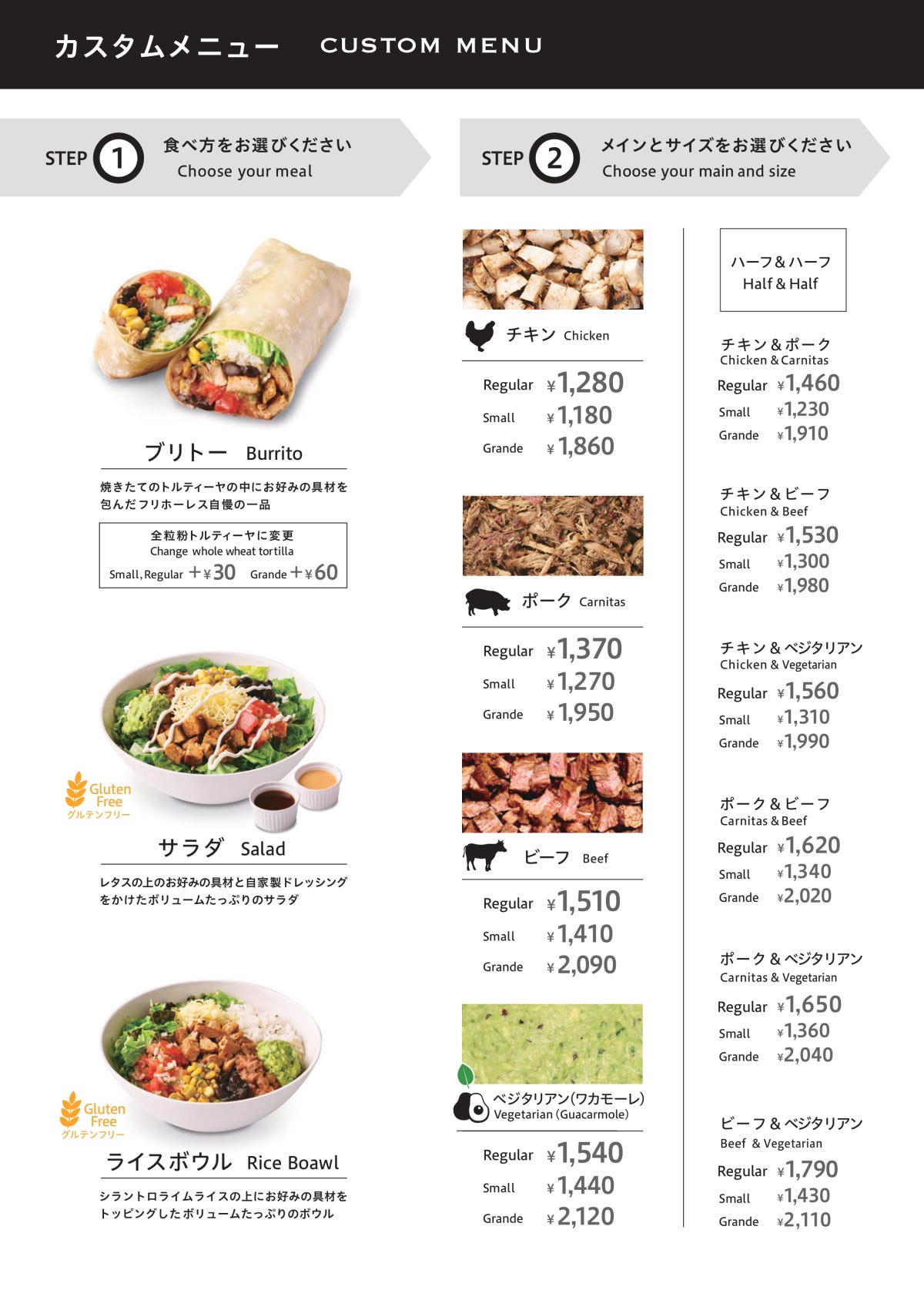Imagine that you live in Tokyo and crave any sort of food. Surely in this mega metropolis, literally the world’s largest city, I can find whatever cuisine my heart desires. To almost no one’s surprise, this is accurate. What happens when I crave, not a cuisine, but a specific dining experience? What if I wanted a place with the same flooring, lighting, and menu options, as I would find from abroad?
This may be challenging. Yet the chain restaurant does exist. We have KFC, McDonalds, and Starbucks, all vying for your precious money. Each are designed to make you feel exactly like the locations back home, assuming you live in a place where these mega corporations have proliferated.
Yet one giant fast food chain never landed in Japan. The big Chipotle. The fast casual, Mexican inspired chain that unites Americans in their love of enunciating the word carnitas. While this article would be very boring if I just list chains that are not in Japan, the fascinating aspect to me is that someone loved every aspect of Chipotle so much, they rebuilt an imitation store in Japan. Which now has its own chains.
Welcome to Frijoles
Should you visit Frijoles in Tokyo, it will literally feel like a parody store. Not because of how funny it is, but by how faithful the recreation toward Chipotle is. Lit in the all white, fluorescent tiles that greets you at the Mexican-American chain, you can build your own burrito based on the varied items on display. Of course they got rice, but also beans, meat, salsa etc.
This is Chipotle in everything but name. Even look at the font!
The experience is so eerily familiar (at least to the one time I visited Chipotle in the US), that I expect a college student in athleisure debating whether guac is even worth the extra, while devouring a double-protein bowl.
The real secret is that this isn’t like Dumb Starbucks. Frijoles isn’t a gimmick or a one-off novelty. It’s a legitimate, thriving fast-casual chain in Japan. At least in major metropolitans, they are the Saizeriya of Mexican dining. This fascinates me, given the blindingly clear genetic similarities between it and Chipotle.
Copying Chipotle Choices
The fact that Frijoles exists is a masterclass in learning from others, and a repudiation that Japanese people don’t try non-Japanese foods. While the burrito isn’t part of the normal staple diet, the creators of Frijoles saw this not as reason to avoid Mexican, but as a gap in the market. Maybe more importantly, they saw how successful Chipotle was.
As the name fast food suggests before them, Frijoles and Chipotle offer the efficiency that is prized in an often shortened lunch culture. What sets this apart from others is the high level of customisation available.
Perhaps Chipotle’s biggest success has come from the build-your-own meal concept. Americans love the illusion of choice, as the rows of supermarket options for various high fructose cereal will attest to. Chipotle mastered the art of making you feel like a culinary expert for deciding between black beans and pinto.
Imitation being such a sincere form meant that Frijoles matches this experience almost identically. So in Tokyo, you also;
Pick a base: Burrito, tacos, or rice bowl
Selecting size: Small, Regular, Grande
The protein pick: chicken, carnitas, beef or vegetarian?
Bean boss or rice: Black or pinto beans, Cilantro lime or fajita?
Chilli Choices: Tomato, Mild corn, medium, or 4 chillis (but it’s Japan so still not too hot) salsa?
Cheese, sour cream and lettuce decisions
Guac costs extra, because some things are sacred.
Following in Footsteps or Wearing their Skin?
You might look at these menu options and think, why is Frijoles not set upon by the army of Chipotle solicitors that are fighting the good fight and making the most of their law degree?
Even a non-American like me can see that Frijoles isn’t just inspired by Chipotle, it’s basically a love letter scrawled in cilantro-lime rice. So how do they get away with it?
A few reasons. First, while Frijoles feels like Chipotle, it doesn’t actually use any of its trademarks. There is no Chipotle logo, no official branding, and crucially, no official advertising or claim that they, in any way affiliate with the American behemoth. The menu is eerily similar, sure, but legally speaking, no one owns the rights to a burrito. Especially as the menu spices and rubs aren’t the identical flavour profile of Chipotle’s patents.
Secondly and perhaps most saliently, Chipotle is not in, and has never been in Japan. This means they have no market presence and nothing to protect. Given that Frijoles is a regional niche player in a market that isn’t being targeted, there are better ways for the Chipotlawyers to spend their days. Chipotle would rather not risk the publicity of attacking some other beloved brand to protect a non-existent profit. In fact, Frijoles is almost doing Chipotle a favor, being the guinea pig for any potential actual expansion in the future. Should Frijoles continue to grow and prove Japan can sustain a Chipotle-cover burrito chain, the future may forecast a true entry by the American Mexican monster.
Future Frijoles Forever
I mentioned that the Frijoles business is no pop-up. Having started their journey in 2009 (but maybe more realistically 1993 when Chipotle started), there is every indication that Frijoles only benefits from this carbon copying of Chipotle. They are already successful by any measure, with their 8 stores and growing.
To me, Frijoles remains a fascinating case study in stepping as close to the direct copy line without crossing it.
Is it Chipotle? Legally no. But it’s close enough that as long as you aren’t within earshot of their lawyers and need a taste of American-Mexican fast casual at it’s finest, you won’t care. Of course it is a place beloved by expats, but now has their own devoted local followers. So if Chipotle ever does decide to enter the Japanese market, they might just find that someone already built them a very useful model on how to thrive.
The key takeaway from this article beyond burrito, is that if you ever find yourself in Tokyo, craving your own concoction of rice, beans, and protein that feeds you for days, you don’t need to just reminisce about your hometown Chipotle. Just feast at Frijoles.







You can get Mexican food in Tokyo but not in London apparently.
There’s a Frijoles in the Tokyo Midtown mall near the Ritz-Carleton and it’s pretty good. I lived in Fukuoka in the 1990s and was always searching for Mexican food, and finally found one little shop called Chili Joe’s in Umi no Nakamichi which was actually good. The owner said they had to import tortillas, chilies and sour cream because distributors didn’t carry them. There are many more Mexican restaurants now, some are pretty good, but none I’ve found yet that improve on the original, like some French and Italian restaurants in Japan do.